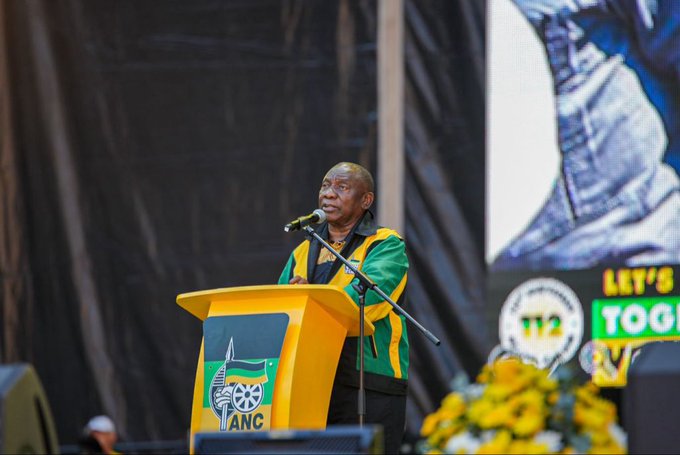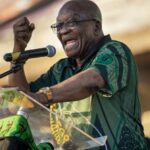
Ramaphosa roots for ‘common ground’ as ANC seeks coalition partner after poll loss » Capital News
NAIROBI, Kenya, Jun 3 — South Africa’s President Cyril Ramaphosa has urged parliamentary parties to build consensus after the ruling African National Congress (ANC) lost its majority in Parliament following Wednesday’s national election.
The Ramaphosa-led ANC garnered 6.5 million votes (42.2 per cent) translating to 159 seats, down from 230 in 2019. The figure meant ANC had 42 seats short of the 201 threshold required to form government.
Officials results with a national voter turn out of 58.6 per cent put Democratic Alliance, South Africa’s main opposition, at 21.8 per cent having secured 3.5 million votes. The DA secured eighty-seven seats.
“South Africans expect the parties for which they have voted to find common ground, overcome their differences, and act together for the good of everyone,” Ramaphosa said following the official declaration of polls results by the Independent Electoral Commission (IEC) Sunday evening.
He welcomed the poll outcome as a “victory for our democracy”.

Ramaphosa’s bitter rival — Jacob Zuma — emerged as the biggest beneficiary of ANC’s fall from a 30-year dominance after the uMkhonto weSizwe (MK), Zulu for spear of the nation, bagged fifty-eight seats having registered 2.4 million votes (14.58 per cent).
MK emerged on top in ANC’s traditional base of KwaZulu-Natal which is Zuma’s home region.
The Julius Malema-led Economic Freedom Fighters (EFF) settled for the forth place having been aged from the third position in occupied. EFF bagged 39 seats having recorded 1.5 million votes (9.5 per cent).
With no clear majority to govern, ANC is set to convene an internal meeting on Tuesday to map up a strategy to make up for the 42 additional seats it required in the 400-seat National Assembly to form government.
EFF demands

Malema’s EFF Saturday signaled willingness to form a coalition with ANC welcoming the election outcome which it hailed for ending ANC’s absolute majority in Parliament.
He listed key time-bound demands including a constitutional amendment and land reforms.
Malema further demanded the ANC offer House Speakership in addition to Cabinet slots.
“We will not determine who ANC picks just like they must not determine who we want on our side,” he told a news conference.
Malema ruled out a unity government involving more parties saying: “I am not Nelson Mandela”.
The coalition government will mark the first time ANC has missed the 50 per cent threshold since sweeping to power at the end of apartheid in 1994 under Nelson Mandela, the country’s first black leader.
ANC performance in the 2024 election marked its worst fall yet having declined from 62 per cent in 2014 to 57.5 per cent in 2019, a shift that cost it nineteen seats in the National Assembly to settle for 230 even as EFF grew from 25 seats in 2014 to 44 in 2019.
ANC’s 2014 performance when Malema’s EFF made its debut marked a decline from 65 per cent in the 2009 election.
Quota system
The party registered its highest performance in 2004 under Zuma when it won 69.7 per cent of the vote up from 66.4 per cent in 1999, and 62.7 per cent in 1994.
South Africa has a parliamentary system of government where IEC computes seats for parliamentary parties based on a quota system pegged on each party’s performance in the national election.
IEC divides the number of valid votes cast by the number of available seats (400) in the National Assembly to determine the number of votes a party needs for a single seat.
A party needed 45,000 votes for a single seat in the House in 2014 and fell to about 44,000 in 2019 after the voter turnout dipped by about 7 per cent.
